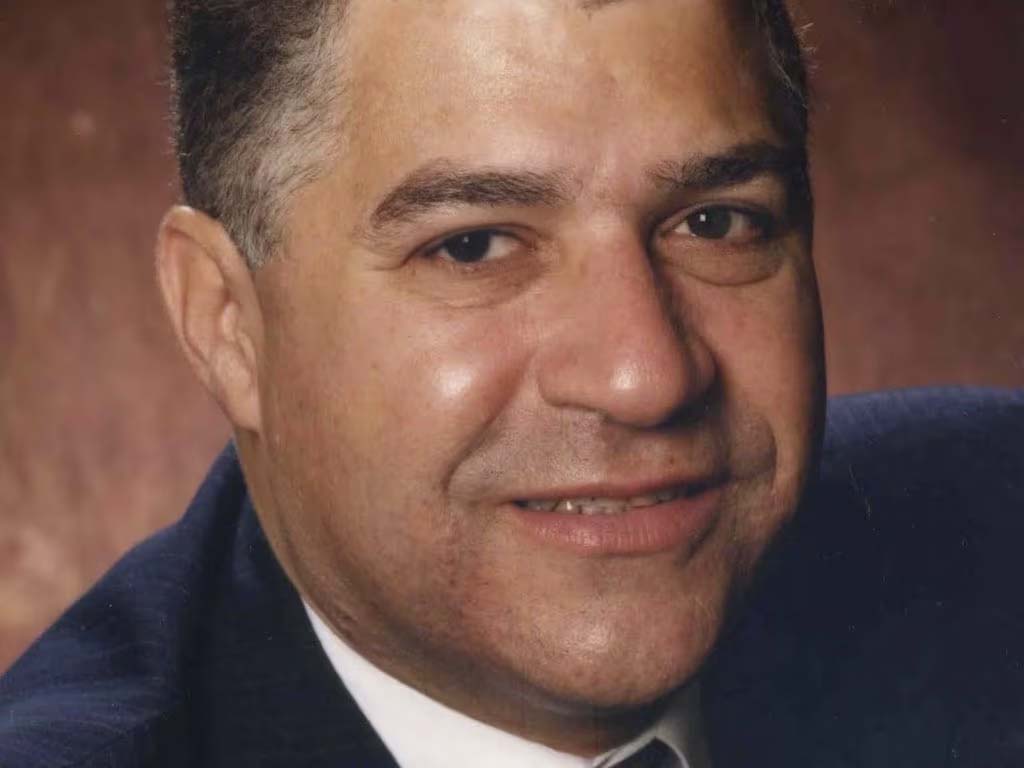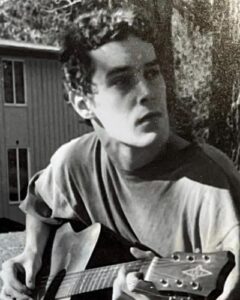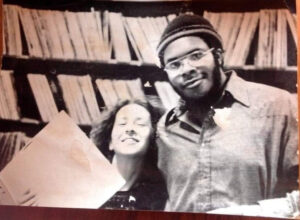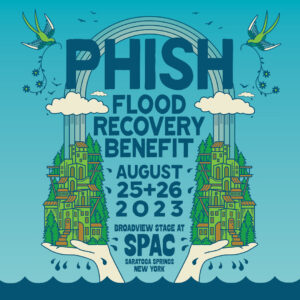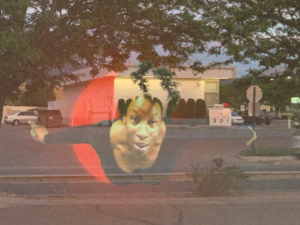
How are you, my fellow writer?
By Alexandra Panic
This past spring, at my annual physical exam, I was given a questionnaire I was to fill and hand to the nurse before proceeding to the doctor’s office. I have been with the same practitioners since 2009, and this was the first time they asked about my emotional well-being. First, I thought that the change had to do with my age of being now 35, then I remembered that we are all emotional beings, so the age shouldn’t have mattered. Perhaps, the change came with the shared fear of the new president of our state – maybe our physicians were concerned, now more than ever, that one wouldn’t be able to resist the collective depression? Whatever the reason was for the questionnaire, it didn’t bother me more than the fact that I had to lie. I had to lie to almost all of their questions.
How many times in the last two weeks have you had trouble falling asleep?
a) I fall asleep quickly
b) 1-3 times
c) More than five times
d) Every night
I am a mother of two young kids who wake up a few times every night, but I am also a writer who cannot shut her brain at an appropriate hour. If I had said every night, they would have suspected insomnia and tried to discuss treatment options. But I am not an insomniac; I am a storyteller. In our world, it is normal to be up all night if a story is haunting.
How many times in the last two weeks have you experienced a sudden feeling of fear or panic?
How about every time I turn on the CNN? Or every time I visit web pages of Serbian news channels. Some of you have one government to dislike – and I have two, so double the trouble, and double the fear, and triple the panic. Therefore, I had fabricated another answer. I know myself quite enough to recognize that all my fears and surges of panic come from the wrongs of the world. My fears are the result of my knowledge and my intuition, and they are as real and concrete as this bleeding planet. And for the worse, they are not sudden but constant. So how could an empathetic writer have admitted such feelings? Being fearful and in a panic, is part of who I am and part of my creative process. Fear accelerates my thoughts and triggers immediate reactions. I write about feelings, and I want them to read visceral. Panic creates urgency; without urgency words flatline. Wouldn’t a writer have wanted those feelings? Do you experience fear and panic? Does this help you write?
How many times in the last two weeks have you felt the loss of hope?
By this question, I laughed out loud in the patients’ waiting room. A lot has happened since I graduated with my MFA in Creative Writing. And yet – nothing happened for my writing. My father was diagnosed with a rare bone marrow disease called MDS, for which, in Serbia, there are only few treatment options (at his age) and not a lot of information. There are only a few doctors in the country who had had experience with the illness, and they still don’t have a support system for the MDS patients. On the other hand, I researched about how they fight this here in America, but the more they discover, the less hopeful they are.
Sometimes, the loss of hope comes with a new knowledge. Sometimes, the more I read, the less I write. The more I admire other writers, the less confident I am in my own work. And what hurts the most – the more I try to connect with the world, the more I feel rejected. I do know that the most celebrated writers had faced countless rejections, and that we all confront them every day. But still, I can’t shake off this lingering motion of urgency clinging on my shoulders, bugging me with its increasing weight. I want my time to start now. Now. Now. Now. So, every, “Thank you for submitting your work to our publication, but…” changes the now to some future day, and occasionally, on bad days, to never. And how many bad days can a writer have in a two-week period?
Well, go back to the previous question. It is all connected. How many times have you turned on your TV this week to listen to the breaking news? How many shootings have happened? Explosions? Wildfires? Protests? How many times today have you clicked on a news channel page? How many insanely wrong political decisions have been made? We are the messengers of the world. If the world is bleeding, we are bleeding too.
Speaking of the bleeding, a couple of months ago, I had to go through the seemingly routine surgical procedure. I had to have some abnormal cells removed from my cervix. The cells that, if left inside me, would be turned malignant. The procedure was presented to me as almost painless with a short and easy recovery period (a week or two). However, for an inexplicable reason, I couldn’t stop bleeding. With excessive bleeding soon came the dizziness and weakness and fatigue. Although my check-up showed no signs of trauma or infection, I was still a walking stream of blood.
I wondered how such a huge amount of light red blood could come from a half an inch sized wound? It didn’t take me long to realize that the bleeding wasn’t coming from my cervix but my heart.
How many times in the last two weeks have you felt the loss of hope? The question echoed in my mind.
Hope is not something that we can possess or lose in numbers. Hope is a variable – it gets stronger, and it gets weaker. To make hope stronger, we need to feed her ideas. Ideas, like groceries, don’t usually live on our shelves. At least once a week, we buy bread and milk, and at least once a week, we should get out of our shell, cave, or routine and connect with our community of artists and alike thinkers and arm up with confidence that our work matters.
The day Lidia Yuknavitch visited Seattle to read from her Book of Joan, I felt inspired because I was already a few chapters in her newest novel that even more than her previous books I loved, made me feel with my whole body. I was frightened for our future. Not for tomorrow or the next year, but for the life of our aching planet. What if the world we know was moving toward the apocalypse?
In the reading room of Seattle’s iconic Elliot Bay Bookstore, I sat in the front row so that I could have a better perspective of the stage. I listened to Yuknavitch read from her novel, imaging the day I would stand on the same spot (and read from my book). But I guess I hadn’t imagined the scene in full detail. I just had a picture of myself on the stage. A few minutes later, during the Q&A, a reader asked a question, and I followed with a commentary. Lidia liked my thoughts on the topic and invited me to take her place, so I could share my words with the audience. I claimed the Elliott Bay’s writer’s podium, and in my state of half-embarrassment and half-excitement, I forgot to present myself. But I did deliver a decently eloquent five-minute speech. And it felt great! I experienced an audience!
Our dreams do come true but not always in the expected order or the exact way we have projected. And every step forward toward the big goal strengthens the hope. As well as the positive influence of the people we love and admire. “You are the light,” wrote Lidia Yuknavitch on my copy of Book of Joan. And so are you, my fellow writer.
Two weeks after my LEEP surgery, I took a bus to Vancouver, BC, to board the plane flying via London to Belgrade. I wanted to visit my parents, and the persistent bleeding couldn’t stop me. When I landed in Belgrade, after a twenty-three hours trip, I nearly fainted from exhaustion. The blood now dripped down my thighs and legs and found its way to the floor – the speckles of red on the beige tiles of the Belgrade airport to remind me where my blood came from.
How many times in the last two weeks have you thought that your life didn’t have a purpose?
This was the last and the only question I hadn’t lied to. I feel fear and panic and desolation. I lose smile and patience and hope. I don’t sleep. I cry, and now I even bleed. But I know that my life and words and work have a purpose. To my family, to my friends, my students, and my community. And one day, I hope soon, my work will be shared with the world.
The first night in my parent’s home, I slept for fourteen hours straight. Afternoon the next day, my mom woke me up to make sure that I was well, that I hadn’t lost too much blood. On my surprise, the bleeding diminished, and by the time I got back to Seattle, it finally stopped.
How can one make a universal questionnaire of the emotional well-being and think that inside those lines, everybody will write the truth? I lied to almost all of their questions. I lied because one cannot determine an artist’s emotional health the same way as a scientist’s or an athlete’s. An artist feels what she hears and sees; most of the time the world’s wounds hurt us. Also, our characters’ injuries hurt us. And often, when we get to the bottom of a character’s pain or trauma, we can’t easily find the way back to us, to safety. So, we don’t sleep for weeks, or we don’t see the light, or we experience anxiety, or we even lose the feeling of purpose temporarily.
How many times in the last two weeks have you… time is not as linear as science thought us. For me, two weeks is usually the right time I need to immerse myself into a piece I write, into a book I read. I don’t just jump to the bottom of my character’s pain – I descend there gradually – each new step is even more uncomfortable.
In the mind of an artist, pain, fear, hope, and happiness are connected and cyclical. I am the saddest when I am most creative. Happy me doesn’t write. Happy me is out playing, exploring, traveling, falling in love with life and the world. Until she sees or hears something that will find its way to her bloodstream and throb and throb and throb until the birth of a new story.
So, if I had to respond to my doctor’s questions after a family vacation, I wouldn’t have lied. But I got the questionnaire after I had produced my first novel. For three years I had cried my character’s tears, and, for the sake of my story, I got to the bottom of the river that had bled for centuries. And they asked me had I had trouble sleeping, had I had fears, had I felt panic? They asked me if I had ever lost hope? Me, who kept watching the YouTube clips of the bombardment of my city repeatedly, reliving the memories I had long buried, so that I could write about explosions, about all the oranges and reds that tomahawks had left across my sky.
At the end of the questionnaire, there were directions for self-scoring. Depending on the option a patient had chosen, the patient alone should have figured how (un)healthy she was. Could I measure my well-being by numbers? Could I let them see the truth?
No! No, because I am fine as much as all the people who think and feel and have ideas are. And, at the same time, and for the same reasons (because I think and feel and have ideas) I am not well. How are you, my friend?
Alexandra Panic lives with her family in Seattle, Washington, where she writes, teaches creative writing, and edits fiction for Pif Magazine. She is originally from Belgrade, Serbia, although her soul is Italian. She holds a BA degree in Italian Language and Literature from Belgrade University and an MFA in Creative Writing from Goddard College.
She has had three collections of poetry published in the Serbian language, and wrote her first novel in English. Her words have appeared in The Pitkin Review, The Writer in the World, and Pif Magazine.

